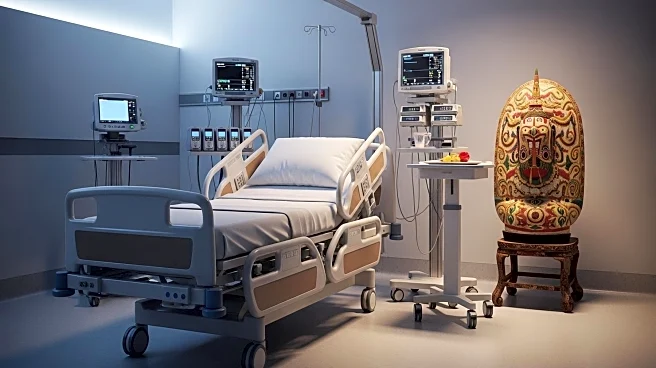What is the story about?
What's Happening?
The medical tourism industry is experiencing significant growth, with its market value projected to increase from $31.09 billion in 2024 to $87.33 billion by 2030. This expansion is not limited to elective cosmetic surgeries but includes advanced medical procedures such as neurosurgery, cardiac surgery, and oncology. Brazil and India are leading destinations due to their innovative technologies and welcoming cultures. Brazil attracts medical tourists primarily from the United States, offering a combination of clinical excellence and empathetic care. India is seeing a surge in Non-Resident Indians returning for affordable treatments, bolstered by enhanced insurance options. Both countries are implementing programs to support international patients, addressing challenges like cultural barriers and logistical stress.
Why It's Important?
The growth of medical tourism has significant implications for the global healthcare industry. It drives investment in advanced hospital infrastructure and world-class facilities, improving the quality of care. Economically, it boosts related sectors such as hospitality and travel, creating jobs and enhancing local economies. For patients, it offers access to high-quality medical care that may be unavailable or unaffordable in their home countries. This trend positions countries like Brazil and India as trusted global healthcare destinations, potentially influencing healthcare policies and practices worldwide.
What's Next?
As the medical tourism industry continues to expand, countries involved may further develop their healthcare infrastructure to accommodate increasing international patient flows. Hospitals might enhance their services by integrating more comprehensive support systems, such as multilingual assistance and virtual consultations. Additionally, geopolitical factors and visa policies could impact the industry's growth, necessitating adaptive strategies from healthcare providers. The ongoing investment in medical tourism could lead to further advancements in medical technology and patient care standards.
Beyond the Headlines
The rise of medical tourism highlights ethical considerations, such as ensuring equitable access to healthcare and addressing potential disparities between local and international patients. Cultural dimensions, including the integration of empathy and warmth in patient care, may influence global healthcare practices. Long-term, this trend could lead to shifts in how healthcare is delivered and perceived, emphasizing patient-centered approaches and cross-cultural understanding.















